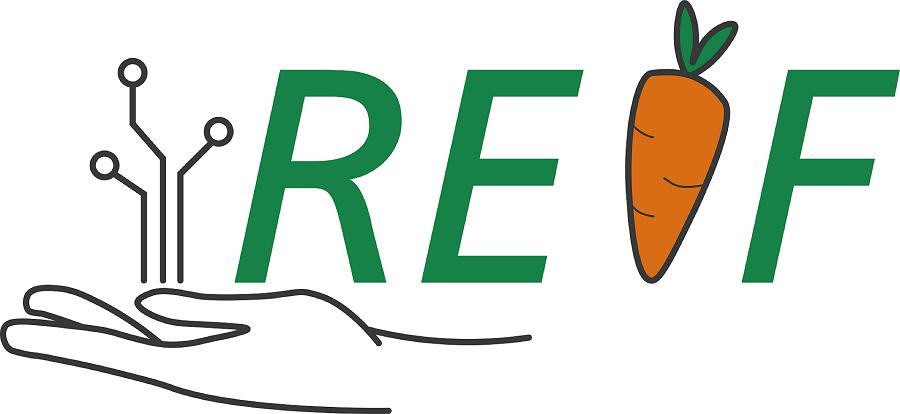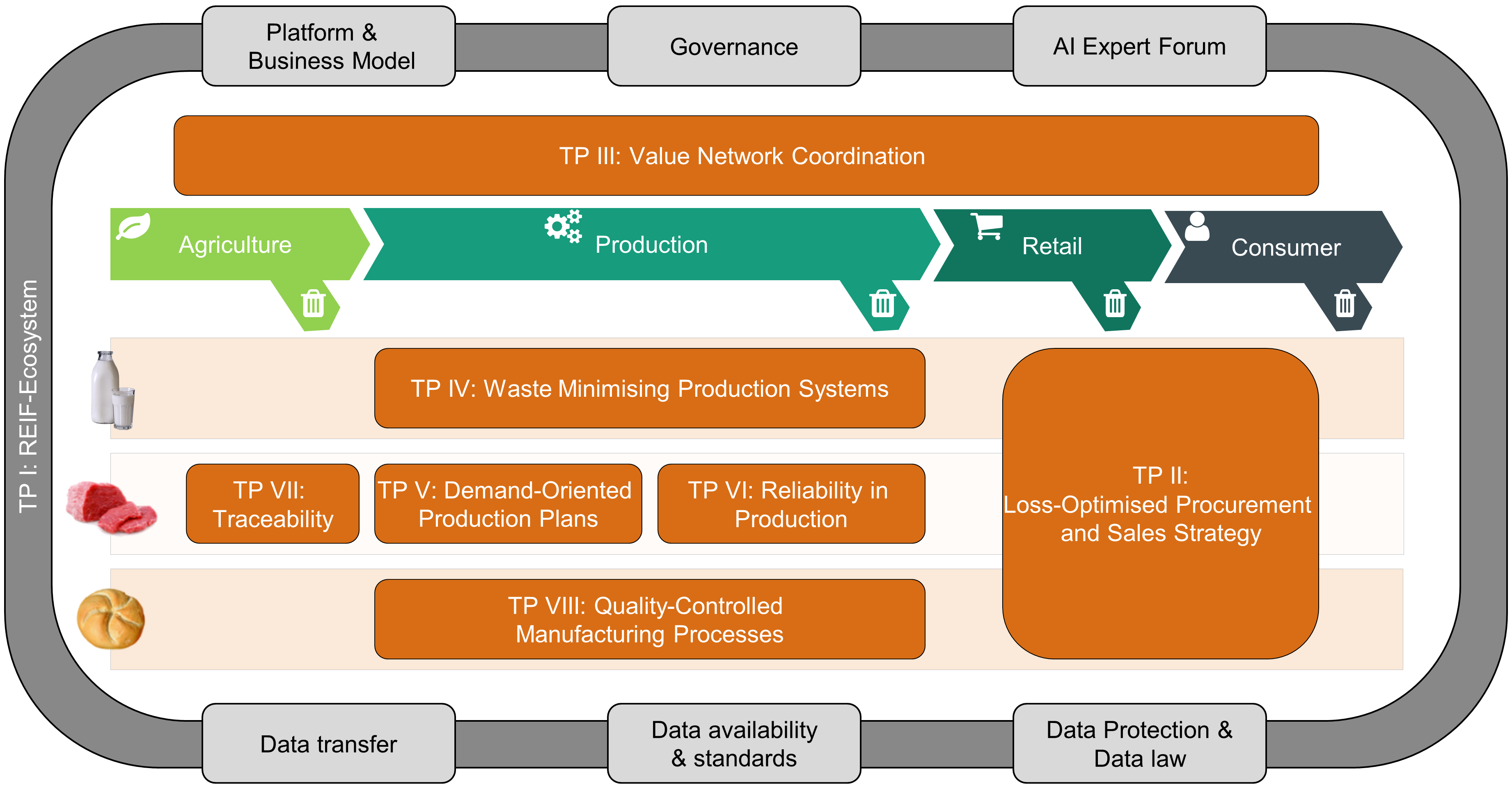Artificial intelligence against food waste
The research project REIF - Resource-efficient, Economic and Intelligent Foodchain, investigates the potential of artificial intelligence (AI) for optimizing the planning and control of value creation in the food industry. The aim of this research project is to establish an AI ecosystem that integrates stakeholders from all stages of the value chain in such a way that food waste can be reduced sustainably and holistically with the help of artificial intelligence.

